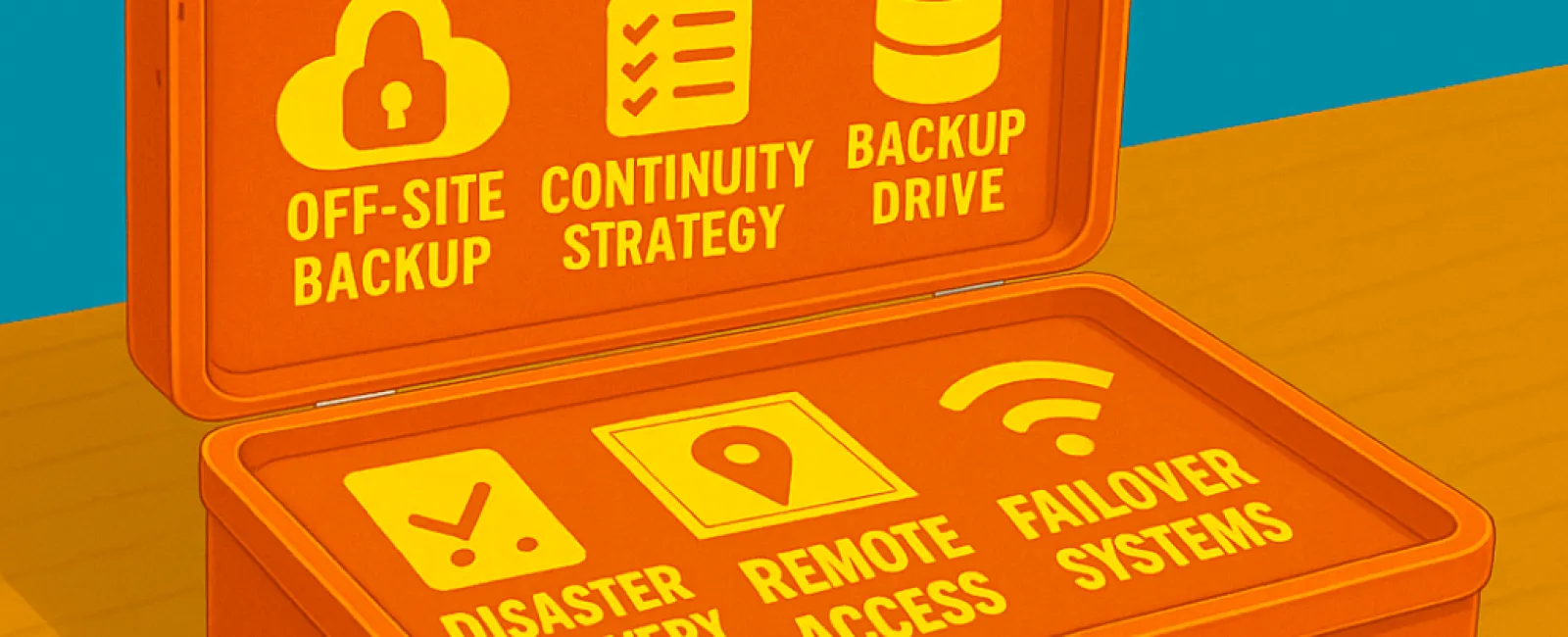July 28, 2025
Unexpected power failures, cyberattacks, hardware malfunctions, and natural disasters can strike without warning, causing severe disruption to small businesses. Many believe that simply having backups is sufficient, but restoring files alone doesn't guarantee your business stays operational. Without access to critical systems, the ability to support remote work, and effective communication with your team and clients, even brief interruptions can lead to prolonged setbacks. Your IT partner should offer more than backups—they must deliver a comprehensive strategy to ensure your business keeps running, no matter the challenge.
Backups Are Just One Piece of the Puzzle—Business Continuity Is Essential
Backups are undeniably important, but they represent only a fraction of what you need. A robust business continuity plan proactively safeguards your operations, enabling you to maintain productivity during and after any crisis.
When systems fail, files become unreachable, or your workplace is compromised, relying solely on local backup files offers little relief. Without a well-defined plan to rapidly restore operations, your business faces significant risks including financial loss, damaged reputation, and regulatory non-compliance.
Understanding the Critical Difference: Backups vs. Business Continuity
Many businesses make a crucial mistake:
●
Backups focus on data restoration.
●
Business Continuity ensures your operations stay uninterrupted, regardless of the circumstances.
An effective continuity plan addresses vital questions such as:
●
What is our recovery time objective?
●
Where will employees work if the office is inaccessible?
●
Which systems are absolutely critical to operations?
●
Who is responsible for initiating the recovery process?
It also incorporates key elements such as:
●
Encrypted, off-site, and tamper-proof backups
●
Clearly prioritized recovery objectives (RTO/RPO)
●
Preparedness for remote work scenarios
●
Redundant infrastructure and automatic failover systems
●
Routine disaster recovery drills and testing
If your current IT provider cannot confidently guide you through these critical aspects, you're not truly protected—you're just fortunate so far.
Is This Risk Real for Your Business?
This isn't a scare tactic; these are real-life scenarios with serious impacts. Consider recent events:
●
Florida hurricanes forced hundreds of businesses to shut down, especially those without cloud access.
●
North Carolina floods wiped out on-site servers, erasing critical records and invoices.
●
California wildfires destroyed entire office buildings in the Pacific Palisades, many without off-site recovery solutions.
●
Numerous small businesses struck by ransomware attacks discovered their backups were either corrupted or never properly tested.
Disasters don't discriminate by business size—they impact companies just like yours every day.
Essential Questions to Ask Your IT Provider Today
If disaster struck tomorrow, could your business keep running?
Make sure to ask your IT provider:
●
How quickly can we recover from a ransomware attack?
●
Are our backups regularly tested, and which systems do they cover?
●
What is the contingency plan if a flood or fire disables our office?
●
Is our business continuity plan compliant with relevant industry standards?
●
Can we continue serving clients effectively if our team must work remotely?
If you don't have full confidence in these answers, your business could already be at risk.
Disasters Are Inevitable. Prolonged Downtime Is Not.
While you can't prevent every outage, storm, or cyberattack, you can control how your business responds.
An excellent IT provider helps you bounce back.
An outstanding one ensures you never miss a beat.
Ready to assess your business's resilience?
Click Here or call us at 954-327-1001 to schedule your FREE Consult and safeguard your operations against unexpected disruptions.





